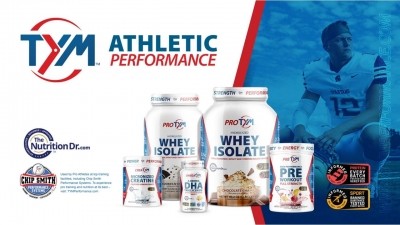Improving patients' at-home nutrition practice improves health, cuts health care costs, study finds

The absence of nutritious food can go both ways—leading to either malnutrition or obesity. Throughout the world, people can be exposed to both forms of malnutrition at different points in their lifetimes, where a person could be malnourished as a child and obese later on in adulthood.
In the US alone, over 25% of community-dwelling, older adults are at nutritional risk. Health and cost burdens of poor nutrition can be lowered by nutrition programs for hospital inpatients, however few studies have looked at the impact on outpatients.
A recent study by Abbott published in the Journal of Primary Care and Community Health found that a new yet simple model of care called a QIP, short for real-world quality improvement program, can help improve care, reduce health resource use, and lower healthcare costs.
“Nutrition care quality improvement programs or QIPs like the one implemented in this study demonstrate the power of nutrition by simulating a real-world patient experience and incorporating systematic actions that can lead to measurable improvements in healthcare services and patient outcomes. Prioritizing nutrition across different settings of care, including outpatient clinics, can help healthcare providers give their patients the best chance of fast recovery that can allow them to return to living a healthy life,” explained one of the study’s researchers, Suela Sulo, the director of Health Economics, Outcomes Research, & Policy at Abbott.
Sulo added that QIPs are sustainable, scalable and able to be replicated because they are adaptable and shown to produce positive outcomes, improving patient health and reducing costs.
Study design
The 90-day home study involved HCPs screening for malnutrition risk, instituting a nutrition care plan that included a nutritional supplement, and teaching the importance of healthy nutrition habits.
The study was implemented at three US healthcare system clinics and involved 600 patients aged 45 and up with chronic conditions. The subjects were predominantly female (62.5%) and overweight/obese (81.7%).
Key Findings
“The results of this study found that supplementing their diet with nutritional drinks like Ensure or Glucerna can help people at risk for malnutrition or with nutritional deficiencies do three things that are key positive outcomes: experience good health and mitigate risk for hospitalization, support recovery/healing at home, and promote faster recovery following a recent hospitalization,” explained Sulo.
The study found that implementing a nutrition program helped improve care, reduced healthcare resource use, and lowered healthcare costs. The three clinics that participated in the study observed:
- There was an 11.6% decrease in the percentage of patients requiring healthcare resources, which allowed HCPs to better manage their patients while reducing costs
- Screening and interventions led to net savings of almost $500 per patient
- More than 81% of patients reported high levels of satisfaction with their nutrition care.
“This is the first-ever study to evaluate the costs and clinical benefits of a real-world, nutrition focused QIP over a 90-day period in US outpatient clinics. We feel that our findings of reduced healthcare resource utilization and costs are compelling. The study engaged physicians, physician assistants, and RDNs, all of whom serve as important healthcare providers and are part of the care team in outpatient clinics. The healthcare providers implemented the nutrition care process within the context of patients’ routine visits. Notably, the QIP implementation steps did not require additional time with the patient or an 'extra' visit or additional staffing resources. We thus showcased how outpatient clinics are uniquely positioned to provide early nutrition interventions for populations with a wide range of chronic conditions and socio-demographic characteristics,” the authors noted.
Challenges
Sulo told NutraIngredients-USA that there are several challenges for QIP implementation, including compliance and the fact that malnutrition is not easily detectable without a full assessment.
“And because malnutrition assessments are currently not required, there continues to be a blind spot in healthcare. We know that poor nutrition status can lead to the development of new conditions or exacerbate existing ones, which makes it important to recognize and treat malnutrition as a vital sign in the same way assessments for blood pressure, heart rate or body temperature are conducted.”
Sulo added that the research highlights the importance of malnutrition screening as part of overall health screening during routine or recurring clinic visits, similar to conventional vital sign screenings such as blood pressure or heart rate.
“By recognizing that someone is at risk for malnutrition, healthcare providers can develop a nutrition care plan to help give patients better health outcomes as well as the ability to recover faster,” said Sulo.
Source: Journal of Primary Care and Community Health
2021 doi.org/10.1177/21501327211017014
“Nutrition Care for Poorly Nourished Outpatients Reduces Resource Use and Lowers Costs”
Authors: K. Hong et al.
















